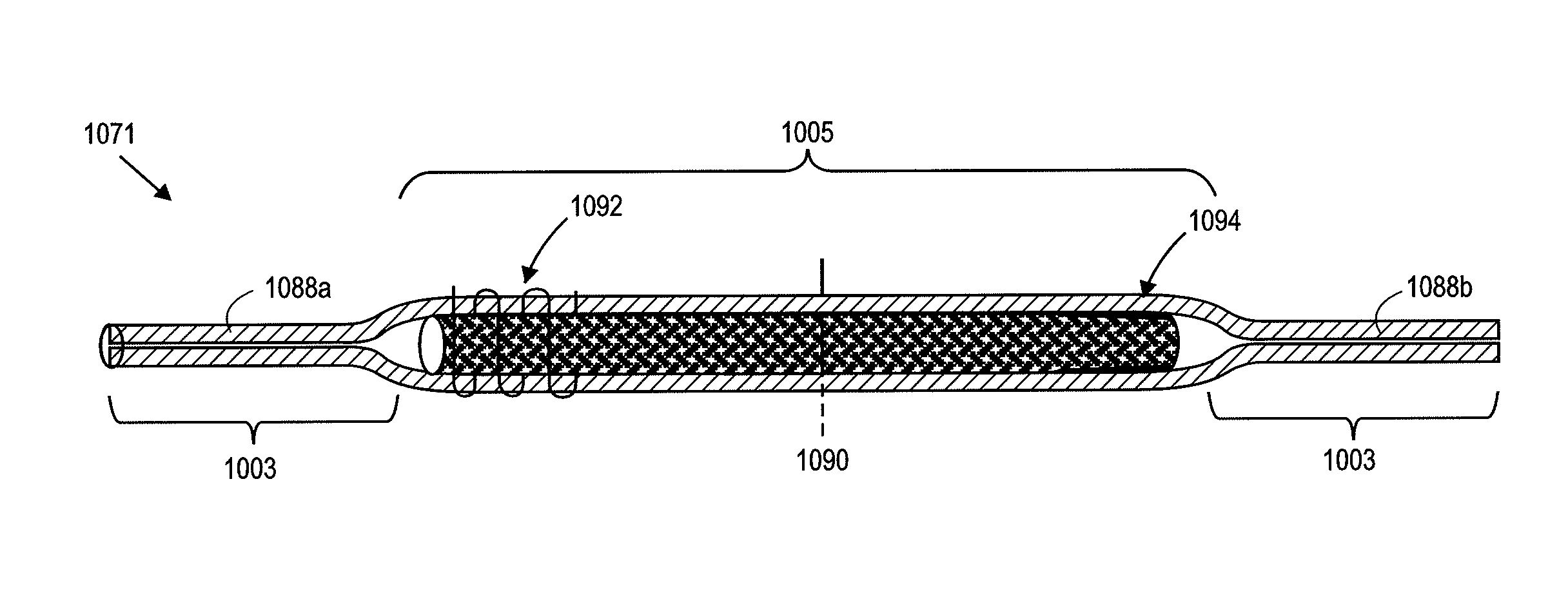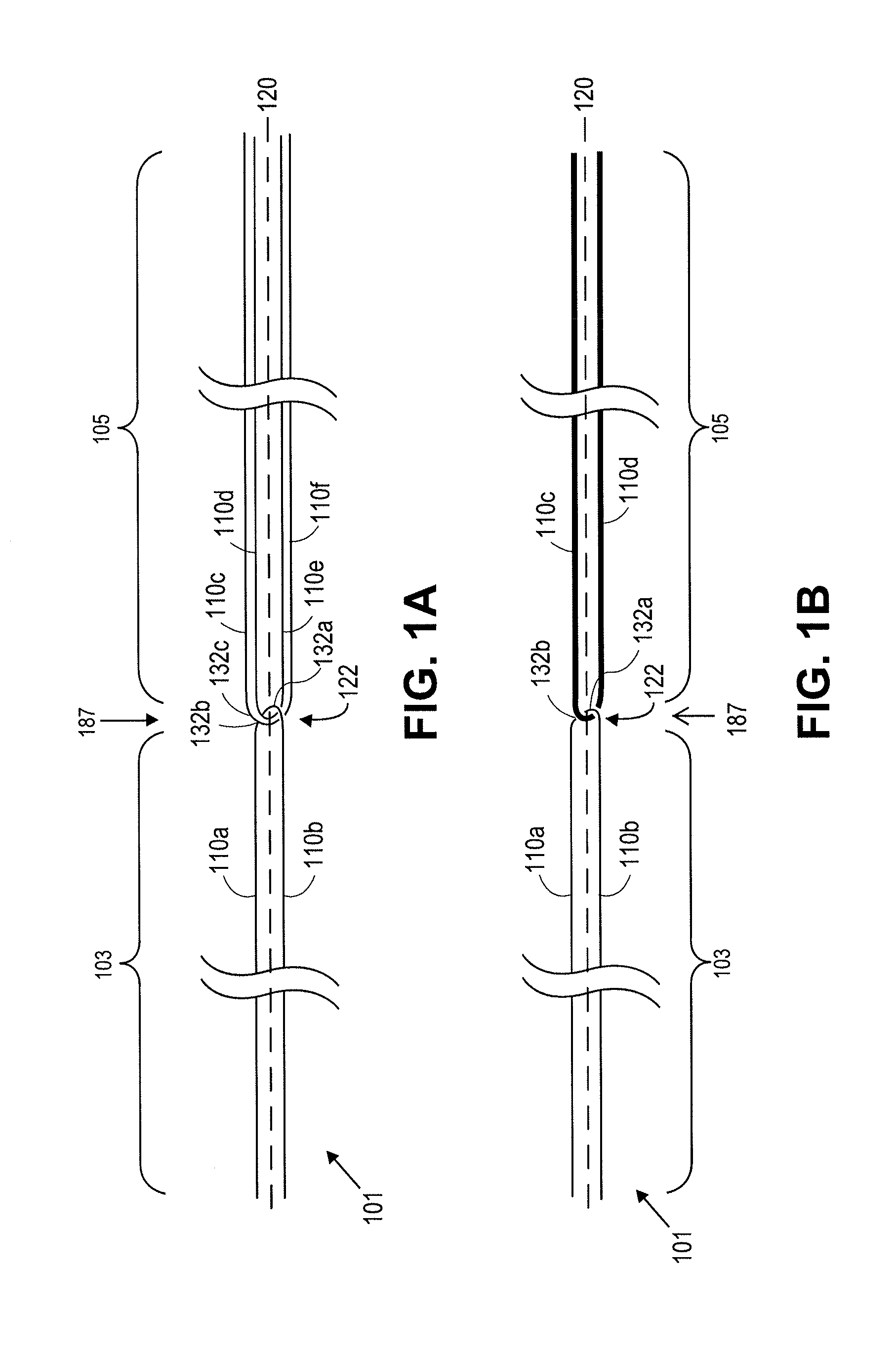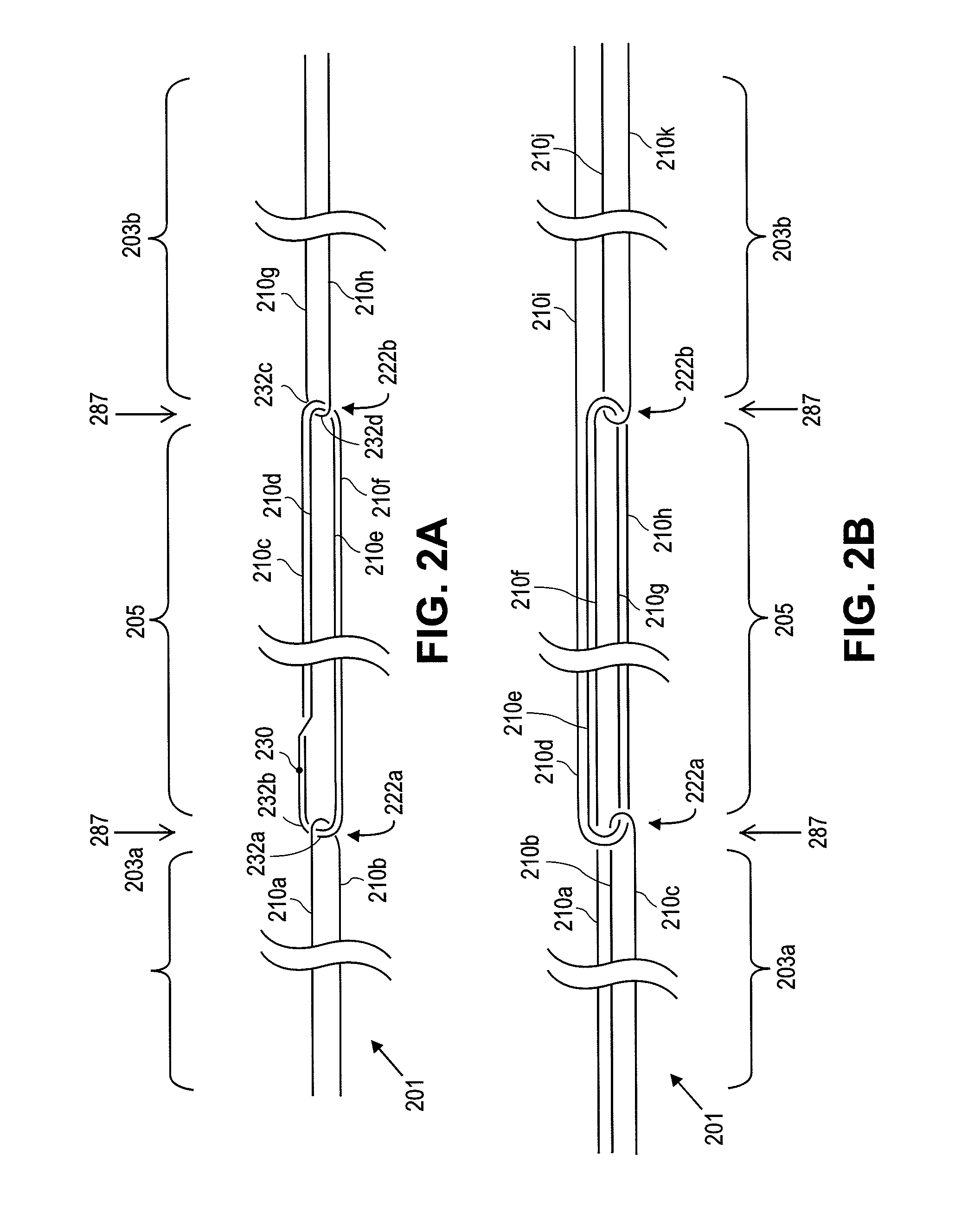Variable denier yarn and suture
a technology of denier yarn and suture, which is applied in the field of variable denier yarn, can solve the problem that the suture having the same diameter as the opening can be nearly impossible to thread
- Summary
- Abstract
- Description
- Claims
- Application Information
AI Technical Summary
Benefits of technology
Problems solved by technology
Method used
Image
Examples
Embodiment Construction
[0034]Described herein are yarns and sutures having variable deniers.
[0035]Referring to FIGS. 1A and 1B, a variable denier yarn 101 can include a low denier segment 103 and a high denier segment 105 having a higher denier than the low denier segment 103. Each segment 103, 105 can include multiple strands 110 coextending axially, i.e. extending substantially along the axis 120 of the variable denier yarn 101. As used herein, the number of strands is the number of yarn element cuts that would be made if a cut were made transversely through the yarn at a particular location. A transition zone 187 can be located at the intersection of, or between, the low denier segment 103 and the high denier segment 105 to transition from the higher denier to the lower denier. For the variable denier yarn 101 of FIGS. 1A and 1B, the transition zone 187 includes a node 122 formed by at least one loop 132 of segment 103 connected to at least one loop 132 of segment 105. Each loop can include a single ya...
PUM
 Login to View More
Login to View More Abstract
Description
Claims
Application Information
 Login to View More
Login to View More - R&D
- Intellectual Property
- Life Sciences
- Materials
- Tech Scout
- Unparalleled Data Quality
- Higher Quality Content
- 60% Fewer Hallucinations
Browse by: Latest US Patents, China's latest patents, Technical Efficacy Thesaurus, Application Domain, Technology Topic, Popular Technical Reports.
© 2025 PatSnap. All rights reserved.Legal|Privacy policy|Modern Slavery Act Transparency Statement|Sitemap|About US| Contact US: help@patsnap.com



